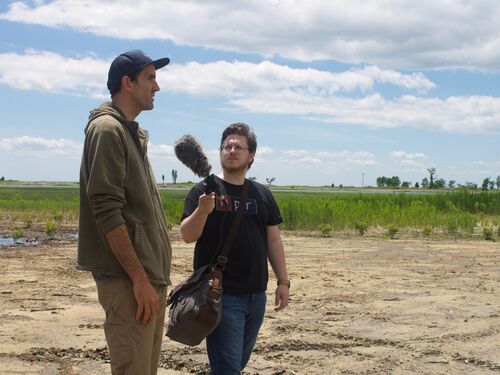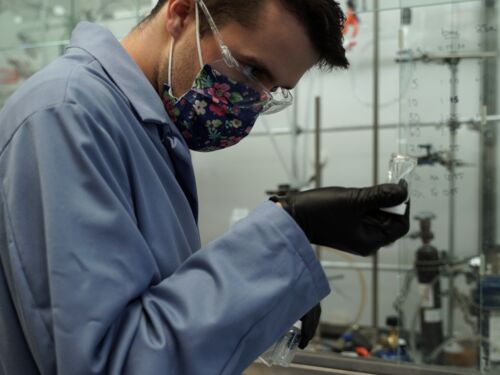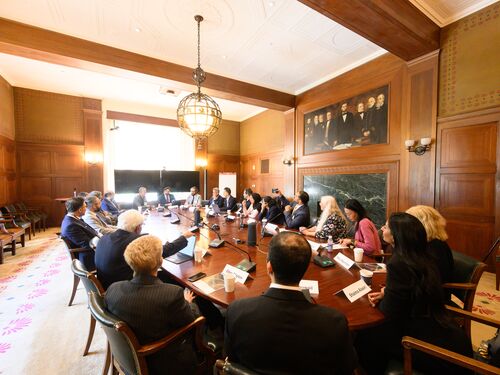How College and University Leaders Are Getting Their Campuses Vaccinated
Feature Story
By Megan Lowry
Last update September 28, 2021
As the fall term begins, administrators are turning to new strategies and incentives to get college-aged students vaccinated against COVID-19.
For the first time since the pandemic struck, many colleges and universities are starting the fall term at full capacity, with dorms full of students, classes held in-person, and school events back on the calendar. While each college or university’s strategy for preventing the spread of COVID-19 is different, they share a common thread: Vaccination is the best tool many campuses have for keeping COVID-19 at bay.
Hundreds of universities and colleges are requiring students to be vaccinated as a condition of enrollment, but convincing hesitant students to get the shot remains a challenge. A recent series of conversations among college and university leaders — organized by the National Academies of Sciences, Engineering, and Medicine — brought to light new and creative methods that campus leaders are using to encourage vaccination in this specific group of young adults.
What Drives College Students
College-aged individuals are in a unique phase of development, and while many live independently as adults, manage their own lives, or even have children of their own — what motivates someone in college can be very different from what motivates adults in their 30s or 40s.
Findings from developmental psychology and brain research about adolescent and young adult behavior indicate that college-aged individuals are socially driven, with a strong desire for reward and acceptance. Identity, agency, and autonomy are centrally important during the college years. A rapid expert consultation published last year by the National Academies says campus leaders may find success in their COVID-19 prevention strategies by tying them to these characteristics and motivations.
The same findings could also persuade this population to get vaccinated. Xochitl Amaro is a junior at the University of Michigan and a student researcher with the My Voice project, a national survey project that asks youth about their experiences in text message conversations. Speaking at a recent webinar, Amaro said survey data shows college students are motivated to get vaccinated by the “return to some form of normalcy,” including in-person classes and their social lives.
“I also think that a lot of our participants want to protect themselves and want to protect others,” Amaro added. “Students are excited to get back on campus, but are also still willing to participate in these mitigation strategies and are also willing to help develop them, to be a part of it and to feel like they have some sense of control in the pandemic.”
Students are excited to get back on campus, but are also still willing to participate in these mitigation strategies and are also willing to help develop them, to be a part of it and to feel like they have some sense of control in the pandemic.
Getting Students Involved
Amaro emphasized that survey data also shows how important it is to involve students in planning and executing vaccination campaigns: “I think it is highly important to get the youth perspective into these discussions. It opens our eyes, and it also helps [campus leaders] develop a relationship with us to make these strategies more effective.”
Leaning on students’ desire for social acceptance, some schools are putting student-led groups at the center of their vaccination efforts. Chloe Holmes, a rising senior at the University of Illinois at Urbana-Champaign, is a team lead for the campus Wellness Ambassadors, a group that’s not just encouraging their peers to get the shot but also helping run the campus vaccine clinic. Holmes called working at the clinics “actually super fun, really exciting. At our peak, I believe we were vaccinating about 1,000 people a day … We are planning on doing a couple more of those vaccine clinics to make sure that students who can’t get vaccinated at home are able to get vaccinated on campus.”
Throughout the pandemic, her group has held campus events — socially distanced or virtual — to keep “a little bit of normalcy on campus.” Holmes said the Wellness Ambassadors see this semester as an opportunity to keep getting students vaccinated and also a way to address mental health needs and rebuild their community. “We had a lot of feedback from students saying … mentally it is very hard. A lot of changes have happened.”
A System of Incentives
Ruth Hursman, student health coordinator at United Tribes Technical College — whose student body is about 91 percent Native American or Alaska Native — explained in a recent webinar that her school sees vaccines as “our best strategy” to control COVID-19, and as a result has set up a comprehensive system of reminders and incentives to encourage vaccination. “Each of the students and the employees who received vaccinations and completed their series did get a $500 incentive. They have given out T-shirts that have a slogan on it that says ‘Educated, Motivated, Vaccinated’ … We do personal outreach to each of the employees and the students on campus with phone calls and texts and emails,” in addition to offering vaccines to students’ families, said Hursman.
Other schools are incentivizing vaccination and testing by tying them to students’ ability to access basic campus resources. Lynn Goldman, dean of public health at George Washington University said they “created a system that actually keys access to campus and access to buildings on campus to vaccine and testing status.” To incentivize compliance with testing requirements, Becky Smith, an associate professor of epidemiology at the University of Illinois Urbana-Champaign, explained that, “What we found really matters to the students is … their Wi-Fi access … We have the ability to turn off their Wi-Fi if they have been out of compliance with testing for a week or more.”
Mandates and Waivers
Many universities have mandated vaccination for students who plan to be on-campus this term. For students who elect not to vaccinate and instead use a waiver for the mandate, Western Washington University has created a required 30-minute COVID-19 education course to help them understand the science behind managing the virus’s spread, and “to try to dispel some of the myths around that,” said David Hansen, associate medical director for the student health center.
Hansen said Western is also requiring weekly testing for waiver students — to achieve the dual goals of campus health and safety and motivating students to get the vaccine. “Our hope is that if students get tired of coming in to get tested all the time, we will have our nurses standing by with some vaccines.”
Similarly, the University of Maine system is allowing vaccinated students to skip quarantine and weekly COVID testing. “I suppose in some ways, it is a carrot and stick,” said the system’s chancellor, Dan Malloy.
Let the Data Be Your Guide
Even with vaccine mandates, student peer programs, and incentives on their side, campus leaders agreed that responsiveness, flexibility, and leaning heavily on epidemiological data to guide decisions will be crucial for keeping their communities safe this fall.
“I think anybody who thinks that they know for sure what is going to be in place three weeks from now and what the circumstances will be,” said Malloy, “I think COVID has taught us all to be humble and know that COVID is in charge and we are not.”
This article is the third in a series on how the pandemic has affected younger Americans. Read the first article on how the pandemic affected adolescent mental health and development, and the second article on how K-12 schools can support students’ mental and emotional well-being.
Featured Publication
Encouraging Protective COVID-19 Behaviors among College Students
Rapid Expert Consultation
·2020
Developmental psychology and brain research can support campus leaders as they work together with students to prevent the spread of COVID-19 on college campuses and in the surrounding communities. This rapid expert consultation presents research-informed habit-promoting and communication strategies...
View details
More like this
Discover
Events
Right Now & Next Up
Stay in the loop with can’t-miss sessions, live events, and activities happening over the next two days.
NAS Building Guided Tours Available!
Participate in a one-hour guided tour of the historic National Academy of Sciences building, highlighting its distinctive architecture, renowned artwork, and the intersection of art, science, and culture.



